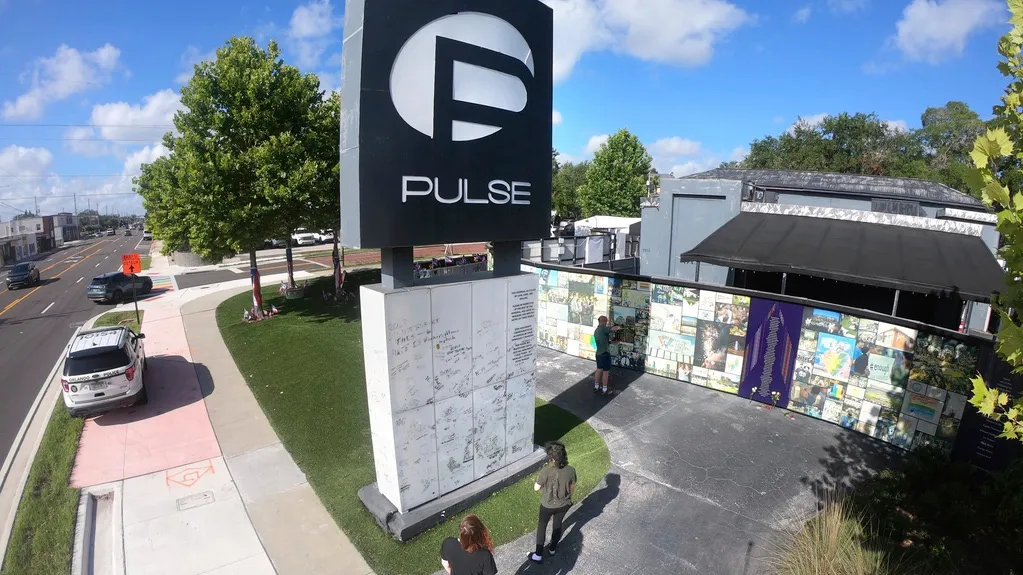January 24, 2015
Alabama Seeks to Stay Order Overturning Gay Marriage Ban
Winnie McCroy READ TIME: 3 MIN.
The Alabama attorney general is asking a federal judge to stay a ruling that overturned Alabama's ban on gay marriage, as advocates cheer what once seemed an improbable victory in the deeply conservative state.
Attorney General Luther Strange's office asked a federal judge on Friday to put the ruling on hold since the U.S. Supreme Court plans to take up the issue of gay marriage this term, "resolving the issues on a nation-wide basis."
U.S. District Callie V.S. Granade on Friday ruled in favor of two Mobile women who sued to challenge Alabama's refusal to recognize their 2008 marriage performed in California.
The ruling is the latest in a string of wins for advocates of marriage rights. Judges have also struck down bans in several other Southern states, including the Carolinas, Florida, Mississippi and Virginia. The U.S. Supreme Court announced this month that it will take up the issue of whether gay couples have a fundamental right to marry and if states can ban such unions.
Alabama plaintiffs Cari Searcy and Kimberly McKeand have been a couple for more than 14 years and have a son together who was conceived with the help of a sperm donor. They filed a federal lawsuit after courts refused to let Searcy be recognized as the adoptive parent of their son because they were not spouses under Alabama law.
The couple posted "Love wins!!!!" on their Facebook page Friday.
"They are ecstatic. They are over-the-top happy about the ruling," said Christine Cassie Hernandez, a lawyer representing the couple.
The judge's decision Friday reverberated through the Deep South state, where 81 percent of state voters in 2006 approved inserting a ban on gay marriage into the Alabama Constitution.
"It is outrageous when a single unelected and unaccountable federal judge can overturn the will of millions of Alabamians who stand in firm support of the Sanctity of Marriage Act," Alabama House Speaker Mike Hubbard said.
Alabama Republican Party Chairman Bill Armistead said the news is a "demonstration of how traditional values espoused by Alabamians have begun to erode even in our conservative state."
Advocates of gay marriage cheered what they called a historic victory in a state traditionally hostile to gay activism.
Ben Cooper, chairman of Equality Alabama, said, "We expect and hope that the attorney general will uphold the decision to recognize same-sex marriage. These laws are irrational and finally have come to the forefront of this debate thanks to brave women like Cari Searcy and Kimberly McKeand."
Granade enjoined Strange from enforcing the state's same-sex marriage bans, raising the question of what happens next. Lawyers said the couple plan to refile their adoption paperwork next week and believe same-sex couples can begin to wed in the state as early as Monday.
A spokesman for Strange said the state was disappointed in the decision. In seeking a stay, state lawyers argued there would be widespread confusion if "marriages are recognized on an interim basis that are ultimately determined to be inconsistent with Alabama law."
David Dinielli, deputy legal director for the Southern Poverty Law Center LGBT Rights Project, said in his personal view couples should be able to seek marriage licenses when the doors of the county clerks' offices open Monday, but that it will likely take much more litigation.
Alabama has two laws banning gay marriage, a state statute and a constitutional amendment called the "Alabama Sanctity of Marriage Amendment" that was approved by voters in 2006. Granade said both were in violation of the equal-protection and due-process clauses of the U.S. Constitution.
Granade rejected arguments from Alabama that the state had an interest in promoting marriage between men and women for the benefit of children. She said the state does not ban marriage for couples who are infertile, elderly, or want to remain childless, and she said children of gay couples are equally deserving of protection under the law.
"The attorney general does not explain how allowing or recognizing same-sex marriage between two consenting adults will prevent heterosexual parents or other biological kin from caring for their biological children," Granade wrote.
Winnie McCroy is the Women on the EDGE Editor, HIV/Health Editor, and Assistant Entertainment Editor for EDGE Media Network, handling all women's news, HIV health stories and theater reviews throughout the U.S. She has contributed to other publications, including The Village Voice, Gay City News, Chelsea Now and The Advocate, and lives in Brooklyn, New York.



